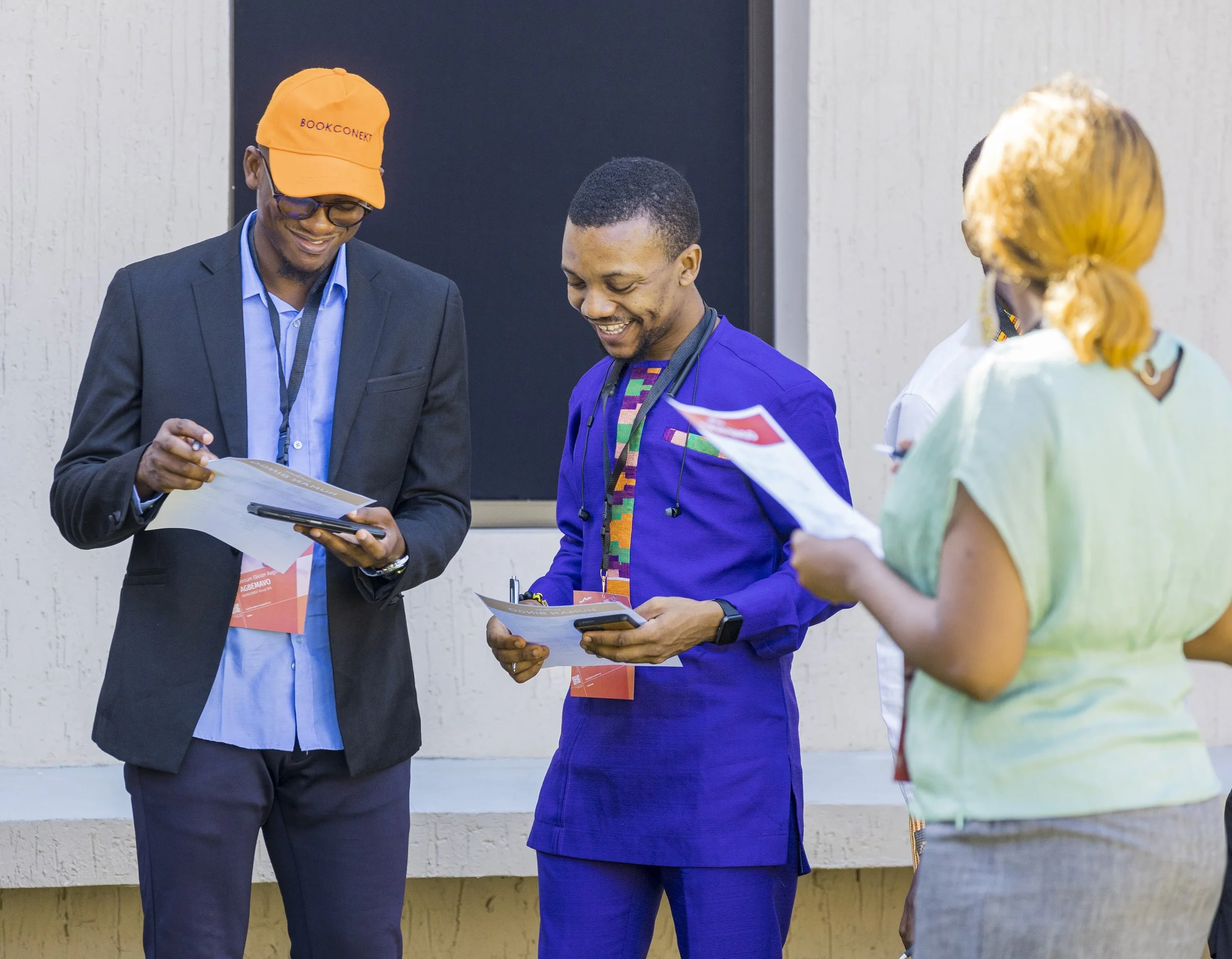African initiatives advancing digital publishing on the continent
By Christian Elongué, Executive Director of Munakalati.org (elongue@munakalati.org)
Introduction
Over 60% of the global population regularly accesses digital content which has contributed to the growth of the market. In Africa, the advent of digital publishing platforms has led to greater flexibility, increased distribution ease, and lower production costs, offering a variety of benefits to both content creators and publishers. Some African publishers and content creators quickly embraced the digital revolution, while others were more reluctant, seeing it as a threat, while complementing print publishing. The early adopters had to overcome several challenges such as the lack of digital infrastructure, access to technology and electricity, and more. In this article, we present the main initiatives in the digital publishing industry in Africa along with the core challenges they overcame. For each challenge, we present the initiatives that address it.
1. Initiatives tackling infrastructure and funding challenges.
At the level of infrastructure, the limited access to reliable internet connectivity and electricity throughout the continent creates hurdles for both creators and consumers. To overcome this, Worldreader provides e-readers pre-loaded with eBooks to schools and communities in underserved areas, partnering with organizations like UNESCO and governments to expand reach. Worldreader reached over 2.7 million people with eBooks in over 50 countries. Afrikrea also offers a cloud-based publishing platform accessible even with limited internet, allowing authors to publish and sell eBooks with mobile money payments.
At the level of funding, many aspiring digital publishers and writers have difficulties in accessing finance for technology, content creation, and marketing. But the Goethe-Institut, through its "Book Sprint" program, provides workshops and micro-grants to support collaborative writing and publishing of African content. Over 300 books have been published and translated into multiple languages through this program. Senghor University and MASA, through their Kreafrica program, are also providing finance training and networking opportunities for African creatives. Crowdfunding platforms have increasingly been explored by African creatives to fund projects. GoFundMe and FundRazr crowdfunding platforms allow African creators to raise funds for publishing projects directly from supporters. Over $2 million has been raised for various creative projects across Africa.
To overcome the cost and pricing barriers, digital publishing offers cost-effective solutions for authors, bypassing traditional gatekeepers and distribution challenges. For example, Moyo Publishing offers a tiered pricing model for their ebooks, making them more accessible to readers with varying budgets. Finally, the African Books Collective also uses a print-on-demand model to minimize waste and increase efficiency.
2. Initiatives overcoming the distribution, literacy, and linguistic challenges.
At the level of distribution, logistical complexities make it difficult to reach audiences across different countries and regions. Some bold and innovative publishers like Bibi Bakare-Yusuf and Jeremy Weate from Cassava Republic (Nigeria) were quick to adopt eBooks and audiobooks, and they are using platforms like Amazon and Apple Books to promote their authors globally. Moreover, Nouvelles Editions Numériques Africaines (NENA), Bambooks, Publiseer and Kreatesell are offering authors avenues to publish and sell their works directly to readers, charging between 20-30% commission rate.
Initiatives such as The Kwani? Manuscript Project and Short Story Day Africa are also entirely online. Mobile apps like Kenya's StoryMoja and eKitabu and Senegal’s NENA are making eBooks readily available on smartphones, even in areas with limited internet access. Muna Kalati has organized more resources here and here.
To overcome poor literacy barriers existing in many African nations, Worldreader Mobile Libraries use tablets preloaded with educational and recreational eBooks to promote literacy in rural areas, often partnering with local librarians. They have increased reading engagement and improved reading skills in participating communities. Along the same line, Storymoja Hay Festival organizes literary events and workshops across Kenya, promoting reading, writing, and critical thinking among children and adults. The festival has reached over 100,000 participants. YouScribe positively impacts education by providing accessible and affordable learning materials, supporting literacy initiatives, and enhancing educational experiences for students .
There are language barriers within Africa, and catering to diverse languages adds complexity to content creation and marketing. Kabod Group, through its network of African Language Translators and Teachers (ALATT) tackles this by promoting translations of African literature into different languages, facilitating wider audiences for diverse stories.
3. Initiatives overcoming concerns of piracy and capacity development.
To overcome piracy and intellectual rights barriers, a major concern for most African publishers and content creators, Muna Kalati and the African Publishers Network (APNET) have been advocating for stronger copyright protection laws and promoting awareness about the negative impact of piracy on the publishing industry. Advocacy efforts have resulted in the implementation of copyright policies in several African countries. Moreso, Bibliotech and PubChain also explored applying blockchain technology to track ownership and distribution of digital content, making it more difficult to pirate. Even though it is still in the early stages, it holds the potential for future significant progress.
At the level of the skills gap, there is a significant lack of trained publishing professionals in areas like digital marketing, editing, and platform development. To mitigate this, the African Publishing Innovation Fund (APIF) offers funding for training programs and workshops for aspiring and established publishers, which could cover topics like digital marketing, editing, and platform management. Other institutions such as the British Council and Goethe-Institut runs the "Creative Writing in Africa" program, offering workshops and mentorship opportunities for emerging writers and publishers. Through this, they supported the development of several award-winning authors. ALX Africa also is indirectly building the tech capacity of thousands of African professionals, from the publishing industry and beyond.
In summary, while there are global digital publishing platforms (Kobo Writing Life, Amazon KDP, Google Books etc.) with extensive marketing tools and greater visibility, we believe homegrown solutions like Bambook.io and Publiseer are more sustainable and beneficial to African economies. An increased and more strategic collaboration between digital publishers, technology companies, and educational institutions from all linguistic regions of Africa, woulddrive innovation in content delivery, interactive learning tools, and digital reading experiences. Establishing partnerships with local authors, illustrators, and educational institutions will also foster community engagement and facilitate the production of relevant and impactful digital content.Africa—with the world’s youngest population, a growing middle class, and increasing internet penetration— has an immense and untapped potential for growth of digital publishing. As the industry evolves, leveraging lessons learned will be essential for the continued growth and success of digital publishing in Sub-Saharan Africa.
Stay tuned to the Global Book Alliance for content like this guest blog and more!


